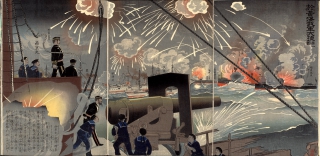On 10 August 2010, Japanese Prime Minister Naoto Kan apologised to the Republic of Korea for the Japanese colonial rule of the Korean peninsula between 1910 and 1945. Such a move was eagerly anticipated – not just in the ROK – and may be viewed as a different Japanese approach to remembering a dark chapter of its history.

Naoto Kan, who had been elected as Prime Minister on 4 June 2010, apologised to the Republic of Korea in a statement published in Tokyo for the Japanese colonial rule of the Korean peninsula. Feeling “deep remorse”, he said that “the side that inflicted pain may easily forget; those who suffered cannot”. Japan is offering “a heartfeld apology for the enormous harm and sorrow” inflicted in Japanese colonial times to South Korea. Furthermore, Korean cultural goods are going to be restituted “in near future”; the latter and the apology are both long-lasting Korean claims.
However, the apology was directed towards the state “only”: neither the displaced forced labourers, nor the “comfort women” who had been forced into prostitution were addressed directly in the statement. Furthermore it is highly interesting that the apology had been directed to the Republic of South Korea only, whereas the area of the former colony of Chōsen comprised both today’s parts of Korea.
Nevertheless, this act of repentance by the Prime Minister – better late than never – is highly important: 100 years after the beginning of this colonial period, the wounds are not healed. The Japanese rule over huge parts of Asia surely was not benevolent; during the atomic bombings of Hiroshima and Nagasaki, some 70,000 Korean victims were mourned who had lived there as forced labourers.
It would be more than welcome if the new Japanese government would follow this approach and constructively address its country’s history. On 15 August each year, people in both Korean states remember the end of the Japanese colonial rule, now 65 years ago.





